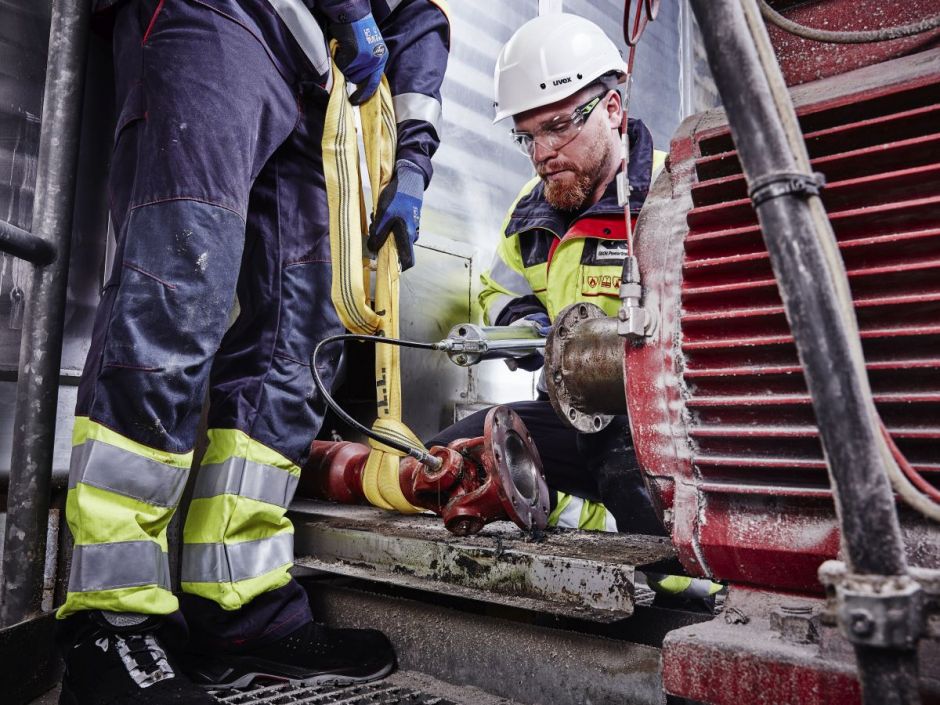Maintenance solutions for industry
Drive shaft maintenance: 3 tips for choosing the right lubricant
Minimize friction and reduce wear: find out here what you should consider when choosing the right lubricant for your drive shaft maintenance and which lubrication procedures are relevant to maintenance.
Lubricants are essential for drive shafts. If a drive shaft is properly lubricated, you can avoid friction, corrosion and dirt contamination as well as ensuring proper heat release. Lubricants not only improve your drive shaft’s lifespan, but also the lifespan of all involved components, resulting in reduction of overall maintenance costs.
Industrie machines and facilities are often subject to rough environmental conditions. Various chemicals, water, dirt, corrosion or high temperatures restrict the performance of lubricants and make high demands on the secondary properties of any lubricant.
The proper choice of lubricants for successful maintenance and repairs depends on three important factors:
1. For high speed operations: which properties are important for a lubricant?
A drive shaft’s torque, but also a high start-up frequency is a strain on drive shaft and lubrication. The major problem of the cardan shafts, namely the irregular torque which is inherent to its design, can subject the bearing needles to abrupt increases in speed which in turn lead to higher stress on the greasing structures. Lubricants with high pressure tolerance are recommended. But be advised: Teflon lubricants may lead to needle blockage in the bearings! High torque in a machine’s drive shaft also causes a higher operating temperatures which must also be considered when choosing the right lubricant.
2. Drive shaft: how important is temperature when choosing lubricants?
During the operation of machines, drive shafts and bearings are often subject to intense temperature changes, possibly affecting the lubricant’s viscosity in a negative way. Operating temperatures higher than 90°C lead to a reduced service-life of multigrade lubricants; further increase by 10°C reduces it to half. This is the reason why many drivetrain specialists and drive shaft manufacturers use special lubricants for drive shafts which permanently ensure optimal lubrication even at operating temperatures of 120°C.
3. Lubrication properties: how does friction affect lubricants?
Often overlooked, but an important factor for lubricity: static charges of the goods being produced. Especially in foil and paper products, friction can lead to static charges. The small electrical charges could lead to sparking in the grease – burned grease, inclusion of particles and reduced lifetime is the consequence. Potential build-ups of electrical charge and concepts for grounding should be thoroughly examined by a maintenance expert.
Important factors to consider for maintenance in your company: choosing the right lubricant is crucial to the lifespan of the drive shaft. Other important factors to consider is the operation temperature and the temperature of the environment, torques, but also the amount of start-ups that drive shaft and bearings are subject to. Take your time when choosing the right lubricant for your application or contact us if you have any questions – we are your technical service experts for the right maintenance measures.



